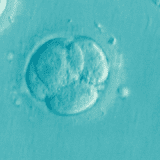The Emotional Toll of a Miscarriage: Finding Healing
Experiencing a miscarriage is a deeply emotional and challenging experience for individuals and couples. It can leave them feeling devastated, overwhelmed, and uncertain about the future. The emotional impact of a miscarriage is often underestimated, as society tends to downplay the loss and dismiss the grief associated with it. However, it is important to acknowledge and address the emotional toll that a miscarriage can have.
During this difficult time, finding healing and support is crucial. It is essential to create a safe space where individuals can navigate their emotions and begin the healing process. This article will explore the emotional impact of experiencing a miscarriage and provide guidance on finding healing and support.
Understanding Grief and Loss
Experiencing a miscarriage can be an incredibly devastating and emotionally challenging event for individuals and couples. It is important to understand the range of emotions that may arise after a miscarriage and the grieving process that individuals may go through.
After a miscarriage, it is common for individuals to feel a wide range of emotions such as sadness, anger, guilt, and confusion. These emotions can be overwhelming and may come in waves, making it difficult to navigate through the healing process. It is important to remember that there is no right or wrong way to grieve, and each person’s experience will be unique.
The grieving process after a miscarriage can be complex and may involve different stages. These stages can include denial, anger, bargaining, depression, and acceptance. It is important to note that not everyone will go through each stage, and the order in which they occur may vary. Grief is a highly individual experience, and it is important to allow oneself to feel and process emotions at their own pace.
During this difficult time, it is crucial to seek support from loved ones, friends, and professionals who can provide understanding, empathy, and guidance. The support of family and friends can be instrumental in the healing process, as they can offer a listening ear, comfort, and a sense of validation for one’s emotions.
Open and honest communication is key when it comes to expressing your feelings to loved ones. Sharing your emotions can help you feel heard and understood, and it can also help your loved ones gain insight into your experience. It is important to remember that not everyone may fully comprehend the depth of your emotions, but by expressing yourself, you are giving them the opportunity to offer support and love.
In addition to seeking support from loved ones, professional help and counseling can also play a crucial role in coping with the emotional toll of a miscarriage. A trained therapist or counselor can provide a safe space for you to explore and process your emotions, as well as offer guidance and coping strategies tailored to your specific needs.
The grieving process after a miscarriage can be long and challenging, but it is important to prioritize self-care and coping strategies to aid in healing. Taking care of your physical well-being is essential, as it can have a direct impact on your emotional well-being. Engaging in activities that promote relaxation, such as exercise, meditation, or spending time in nature, can help reduce stress and promote overall well-being.
Emotional self-care is equally important during this time. It is crucial to acknowledge and process your emotions, allowing yourself to feel and express them in healthy ways. Engaging in activities that bring you comfort and emotional healing, such as journaling, art therapy, or engaging in hobbies you enjoy, can be beneficial in navigating the grieving process.
Another valuable resource for finding support and connection is joining support groups and online communities. These communities provide a space where individuals who have experienced a miscarriage can connect, share their experiences, and offer support to one another. Sharing your story with others who have gone through a similar experience can be incredibly healing and provide a sense of belonging.
Overall, understanding the range of emotions and the grieving process that individuals may go through after a miscarriage is essential in finding healing and support. By seeking support from loved ones, professionals, and engaging in self-care practices, individuals can navigate their emotions and find solace during this difficult time.
Seeking Support from Loved Ones
Seeking support from loved ones is crucial when navigating the emotional toll of a miscarriage. Family and friends can provide a strong support system during this difficult time, offering understanding, empathy, and comfort. Their presence and willingness to listen can make a significant difference in the healing process.
When reaching out to loved ones for support, it is important to communicate your needs and emotions openly. Let them know how you are feeling and what kind of support you are seeking. This can help them better understand your experience and provide the support you need.
It is also important to remember that everyone grieves differently, and loved ones may not always know the right words to say or the best way to support you. Be patient with them and try to express your needs and boundaries clearly. They may be experiencing their own grief and may need guidance on how to support you effectively.
In addition to seeking support from family and friends, consider joining a support group or connecting with online communities where you can find others who have experienced a miscarriage. These groups can provide a safe space to share your experiences, find comfort in knowing you are not alone, and gain insights from others who have been through similar situations.
Remember, seeking support from loved ones is not a sign of weakness, but rather a strength. It takes courage to open up and share your feelings with others. By allowing yourself to lean on the support of those who care about you, you can find solace and healing in their understanding and empathy.
Communicating Your Feelings
When dealing with the emotional toll of a miscarriage, it is crucial to effectively communicate your feelings to your loved ones. Expressing your emotions can be a cathartic and healing experience, allowing you to process your grief and seek support from those closest to you.
Here are some tips on how to effectively communicate your feelings:
- Be honest and open: Share your emotions honestly with your loved ones. Let them know how you are feeling and what you need from them during this difficult time. Honest communication can help create a safe space for you to express yourself.
- Use “I” statements: When discussing your emotions, use “I” statements to express how you personally feel. This can help prevent misunderstandings and allow your loved ones to better understand your perspective.
- Listen actively: Communication is a two-way street. While expressing your feelings is important, it is equally important to listen to your loved ones. Be open to their support and understanding, and allow them to express their own emotions as well.
- Seek empathy, not sympathy: Instead of seeking sympathy, aim for empathy from your loved ones. Empathy involves understanding and sharing in your emotions, while sympathy may come across as pity. Communicate your need for empathy and connection.
- Choose the right time and place: Find a comfortable and private setting where you can have an open conversation with your loved ones. Avoid distractions and create an environment that encourages honest communication.
By effectively communicating your emotions, you can find solace and support from your loved ones. Open communication plays a vital role in the healing journey after a miscarriage, allowing you to feel understood, validated, and less alone in your grief.
Professional Help and Counseling
Professional help and counseling play a crucial role in supporting individuals who have experienced a miscarriage and are dealing with the emotional toll it brings. The guidance and expertise of trained professionals can provide valuable insights, coping strategies, and a safe space to express and process emotions.
One of the main benefits of seeking professional help is having a dedicated and non-judgmental listener who can offer support and guidance throughout the healing journey. These professionals, such as therapists or counselors, are trained to help individuals navigate the complex emotions that arise after a miscarriage. They can provide a safe and confidential environment where individuals can freely express their grief, anger, guilt, or any other emotions they may be experiencing.
In addition to providing emotional support, professional help can also assist in developing coping mechanisms and strategies to navigate the healing process. Counselors can help individuals identify and understand their emotions, explore their thoughts and beliefs surrounding the miscarriage, and work towards finding meaning and acceptance in their experience.
Furthermore, professional help can also be beneficial for couples who have experienced a miscarriage. It can provide a platform for open and honest communication, allowing partners to share their individual experiences and emotions, and work through any challenges or differences they may be facing together.
It is important to note that seeking professional help does not mean that an individual is weak or unable to cope on their own. Rather, it is a proactive step towards healing and finding the support needed during this difficult time. Just as one would seek medical help after a physical injury, seeking professional help for emotional healing is equally important.
In conclusion, professional help and counseling can play a vital role in dealing with the emotional toll of a miscarriage. By providing a supportive and understanding environment, professionals can help individuals navigate their emotions, develop coping strategies, and find healing and acceptance. Remember, seeking help is a sign of strength and self-care, and it can make a significant difference in the healing process.
Self-Care and Coping Strategies
After experiencing a miscarriage, it is crucial for individuals to prioritize self-care and implement coping strategies to aid in the healing process and navigate their emotions. Here are some practices and strategies that can be beneficial:
- Take time for yourself: Allow yourself the space and time to grieve and heal. It is important to prioritize self-care and engage in activities that bring you comfort and peace.
- Seek professional help: Consider reaching out to a therapist or counselor who specializes in grief and loss. They can provide guidance and support as you navigate through the emotional toll of a miscarriage.
- Practice mindfulness: Engage in mindfulness techniques such as deep breathing, meditation, or yoga. These practices can help calm the mind, reduce stress, and promote emotional well-being.
- Express your emotions: Find healthy outlets to express your emotions, such as journaling, painting, or engaging in creative activities. This can help you process your feelings and find a sense of release.
- Establish a support system: Surround yourself with understanding and empathetic individuals who can provide emotional support. Share your feelings and experiences with them, and lean on them during difficult times.
- Engage in physical activity: Regular exercise can have a positive impact on your emotional well-being. Engage in activities that you enjoy, such as walking, swimming, or dancing. Physical activity releases endorphins, which can boost your mood.
- Practice self-compassion: Be kind and gentle with yourself. Understand that healing takes time and there is no right or wrong way to grieve. Treat yourself with love and compassion as you navigate through this challenging journey.
Remember, everyone’s healing process is unique, and it is important to find coping strategies that work best for you. Be patient with yourself and allow yourself the space to heal and find solace in your own time.
Physical Self-Care
Physical self-care is an essential aspect of finding healing and support after experiencing a miscarriage. Taking care of one’s physical well-being can help individuals cope with the emotional toll of the loss and promote overall well-being.
Engaging in activities that promote relaxation and self-nurturing can be beneficial during this difficult time. Here are some ways to prioritize physical self-care:
- Rest and Sleep: Getting enough rest and quality sleep is crucial for physical and emotional healing. Create a comfortable and calming sleep environment, establish a bedtime routine, and listen to your body’s need for rest.
- Exercise: Engaging in gentle exercise, such as walking or yoga, can help release endorphins and reduce stress. Consult with your healthcare provider to determine what level of physical activity is suitable for you.
- Healthy Eating: Nourishing your body with a balanced diet can support your physical and emotional well-being. Focus on consuming nutrient-rich foods and stay hydrated.
- Pamper Yourself: Treat yourself to activities that promote relaxation and self-nurturing. This can include taking warm baths, getting a massage, practicing deep breathing exercises, or indulging in hobbies that bring you joy.
- Limit Stress: Minimize stress by creating boundaries and prioritizing self-care. Practice stress-reducing techniques such as meditation, journaling, or engaging in activities that bring you peace.
Remember, physical self-care is not selfish but rather a necessary part of the healing process. Taking care of your physical well-being can positively impact your emotional well-being and help you navigate through the challenging emotions that come with a miscarriage.
Emotional Self-Care
Emotional self-care is a crucial aspect of finding healing after experiencing a miscarriage. It involves acknowledging and processing the complex range of emotions that can arise during this difficult time. By giving yourself permission to feel and express these emotions, you can take an important step towards healing.
One way to acknowledge and process emotions is through journaling. Writing down your thoughts and feelings can provide a sense of release and clarity. It allows you to reflect on your experiences, gain insights, and find solace in your own words. Consider setting aside dedicated time each day to journal, creating a safe space for your emotions to be expressed.
Engaging in activities that bring comfort and emotional healing is another important aspect of emotional self-care. This can vary from person to person, as everyone has different ways of finding solace. Some may find solace in nature, taking long walks or spending time in a peaceful environment. Others may find comfort in creative outlets such as painting, playing music, or writing poetry. Find what brings you joy and peace, and make time for those activities.
Additionally, seeking support from others who have experienced a miscarriage can be incredibly beneficial. Joining support groups or online communities allows you to connect with individuals who understand your pain and can offer empathy and support. Sharing your experiences with others who have gone through similar situations can provide validation and a sense of belonging, helping you navigate the healing process.
It’s important to remember that emotional healing takes time and patience. Be gentle with yourself and allow yourself to grieve. Embrace the ups and downs of the healing journey, knowing that each step forward is a sign of strength and resilience. By prioritizing emotional self-care and seeking support, you can find healing and begin to rebuild your life after a miscarriage.
Support Groups and Online Communities
Support groups and online communities can play a crucial role in the healing journey after a miscarriage. These platforms provide a safe and supportive space where individuals can connect with others who have gone through similar experiences. By joining these groups, individuals can find solace in knowing that they are not alone in their grief and can share their thoughts, feelings, and stories with others who truly understand.
One of the key benefits of support groups and online communities is the opportunity to connect with individuals who have experienced a miscarriage themselves. These individuals can offer empathy, understanding, and validation, which can be immensely comforting during such a challenging time. Sharing experiences and listening to others’ stories can help individuals process their own emotions and gain a sense of perspective.
Support groups and online communities also provide a platform for individuals to ask questions, seek advice, and gather information about the healing process. Whether it’s discussing coping strategies, navigating relationships, or understanding the physical and emotional aspects of miscarriage, these groups can offer valuable insights and guidance.
Additionally, support groups and online communities often organize meetups, events, and workshops where individuals can come together in person. These gatherings provide an opportunity to form deeper connections, share hugs and tears, and find comfort in the presence of others who truly understand the journey of healing after a miscarriage.
It’s important to note that while support groups and online communities can be incredibly helpful, they are not a substitute for professional help. If you find that your grief and emotions are overwhelming or impacting your daily life, it’s essential to seek guidance from a therapist or counselor who specializes in reproductive loss. They can provide personalized support and help you navigate the complexities of healing.
Frequently Asked Questions
- What are the common emotions experienced after a miscarriage?
After a miscarriage, individuals may experience a range of emotions including sadness, grief, anger, guilt, and even relief. It is important to remember that everyone’s experience is unique, and there is no right or wrong way to feel.
- How long does the grieving process typically last?
The grieving process after a miscarriage is different for everyone and there is no set timeline. It can vary from weeks to months, or even longer. It is important to allow yourself the time and space to heal at your own pace.
- Should I share my feelings with my loved ones?
Sharing your feelings with loved ones can be beneficial in the healing process. It helps them understand what you are going through and provides an opportunity for support and empathy. However, it is entirely up to you whether or not you choose to share your emotions.
- How can professional help and counseling assist in the healing journey?
Professional help and counseling can provide a safe and supportive environment to explore and process your emotions. A trained therapist can offer guidance, coping strategies, and tools to navigate the challenges of grief and loss.
- What self-care practices can aid in the healing process?
Engaging in self-care practices is crucial for emotional healing after a miscarriage. This may include activities such as practicing mindfulness and relaxation techniques, engaging in hobbies that bring joy, seeking physical exercise, and ensuring adequate rest and nutrition.
- Are there any support groups or online communities for individuals who have experienced a miscarriage?
Yes, there are support groups and online communities specifically dedicated to providing a safe space for individuals who have experienced a miscarriage. These platforms allow for connection, sharing of experiences, and finding solace in the understanding of others who have gone through similar situations.











